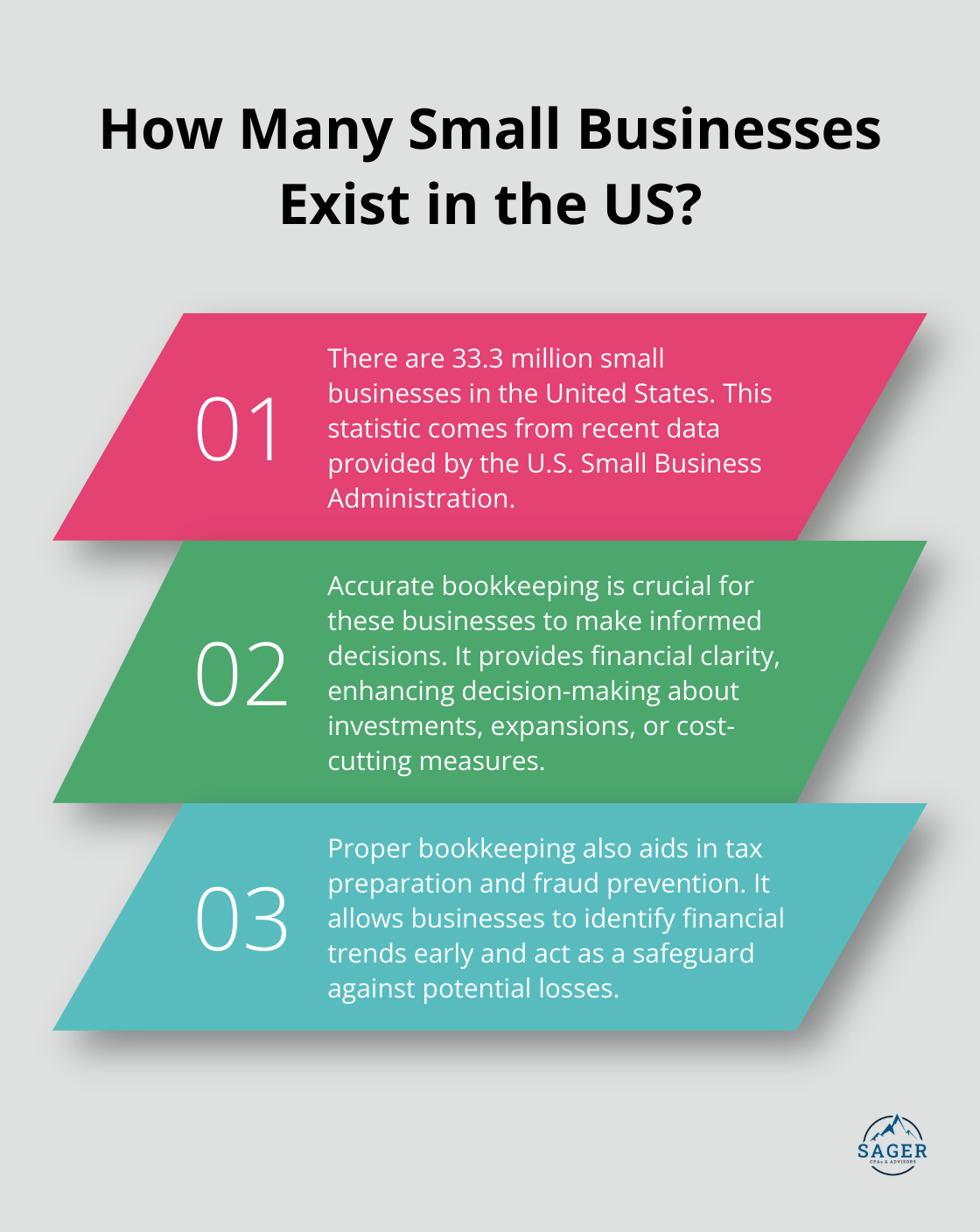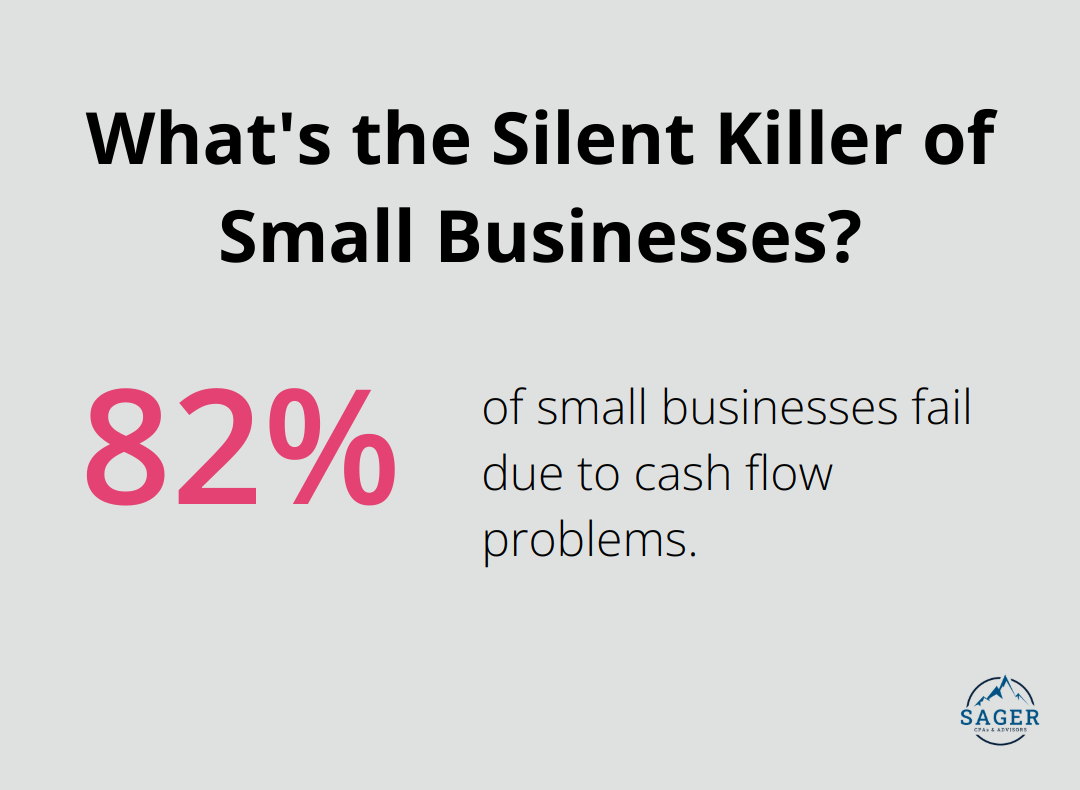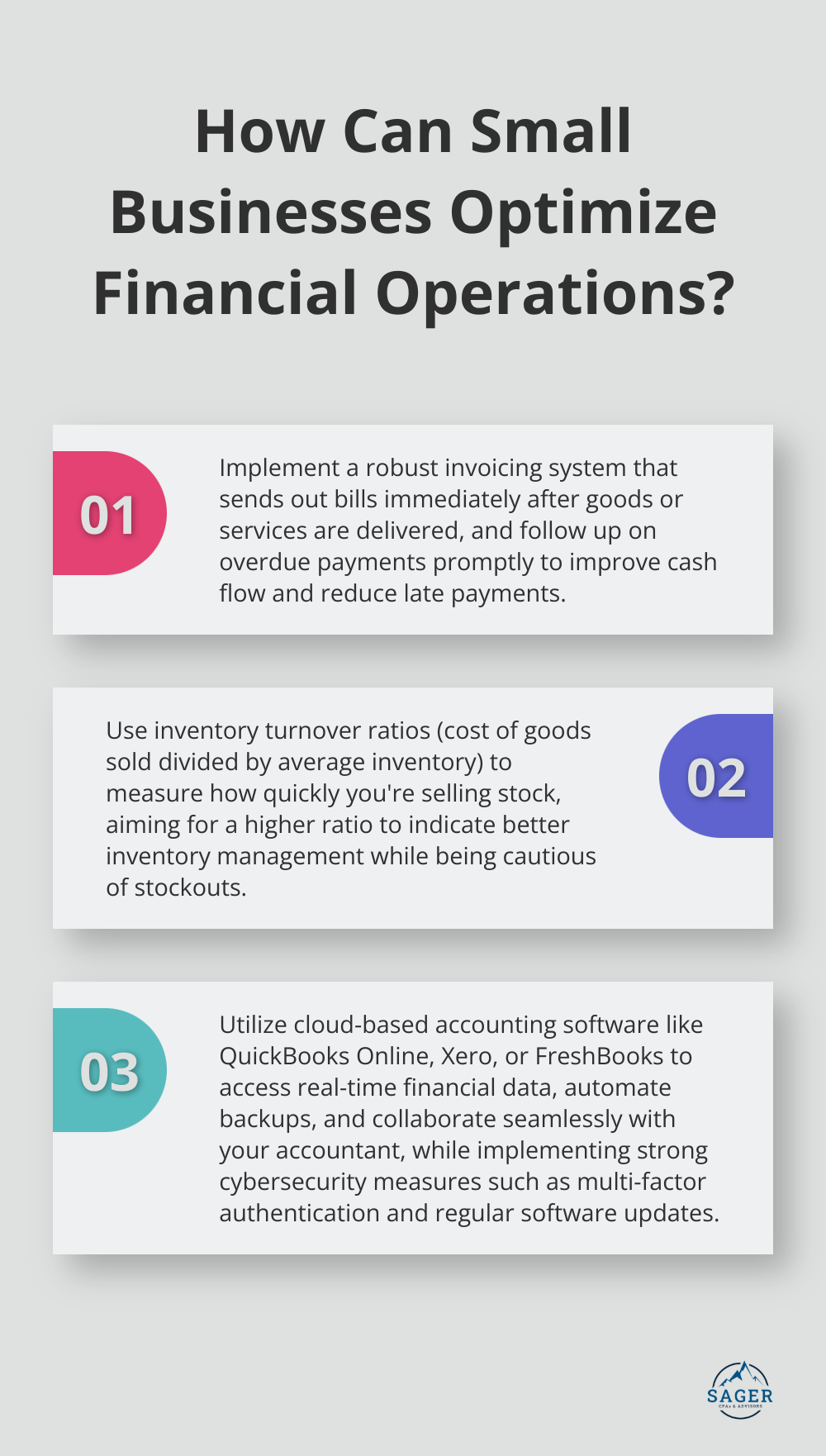
Accounting for a business is the backbone of financial success. It’s not just about crunching numbers; it’s about gaining a clear picture of your company’s health and potential.
At Sager CPA, we’ve seen firsthand how mastering accounting practices can transform a struggling business into a thriving enterprise. This post will guide you through essential accounting strategies that can propel your business forward.
Accurate bookkeeping forms the foundation of a successful business. We at Sager CPA have witnessed numerous businesses transform their financial health through meticulous record-keeping. Let’s explore the importance of precise bookkeeping.
Precise bookkeeping provides a clear snapshot of your business’s financial state. This clarity allows you to make informed decisions about investments, expansions, or cost-cutting measures. Recent data from the U.S. Small Business Administration reveals that 33.3 million businesses in the United States qualify as small businesses.
When your books are in order, tax preparation becomes significantly easier. You’ll spend less time searching for receipts and more time focusing on your business.
Regular, accurate bookkeeping helps you identify financial trends before they become problems. You might notice that certain products yield higher profits than others, or that specific months consistently show lower sales. This information proves invaluable for strategic planning.
Accurate books act as a safeguard against fraud. The Association of Certified Fraud Examiners has published their 13th edition of the largest global study on occupational fraud, based on 1,921 real cases from 138 countries and territories. This vigilance can save your business thousands of dollars in potential losses.
Implementing a robust bookkeeping system doesn’t require complexity. Start by categorizing your expenses, reconciling your accounts regularly, and using accounting software to automate repetitive tasks. These simple steps can dramatically improve your financial management and position your business for long-term success.

As we move forward, let’s explore how effective cash flow management (a natural extension of accurate bookkeeping) can further solidify your business’s financial foundation.
Cash flow management is the lifeblood of any thriving business. Let’s explore some practical techniques to keep your business financially fit.
Accurate cash flow forecasting helps you anticipate financial needs and opportunities. Analyze your historical cash flow patterns. Look for seasonal trends, recurring expenses, and revenue cycles. Use this data to project your cash position for the next 3, 6, and 12 months.
According to SCORE, 82% of small businesses fail due to cash flow problems. Don’t become part of this statistic. Implement a rolling forecast that you update weekly or monthly to stay ahead of potential cash crunches.
Speed up your cash inflows to improve your financial position. Consider offering early payment discounts to incentivize customers to pay faster. For example, a 2/10 net 30 term (2% discount if paid within 10 days, otherwise due in 30 days) can motivate prompt payments.

Implement a robust invoicing system that sends out bills immediately after goods or services are delivered. Follow up on overdue payments promptly. According to a survey by Atradius, 93.6% of businesses reported late payments from B2B customers in 2024. Don’t let your business fall victim to this trend.
Financial ratios are powerful tools for assessing your cash flow health. The current ratio (current assets divided by current liabilities) indicates your ability to pay short-term obligations. Try to achieve a ratio of 2:1 or higher.
The accounts receivable turnover ratio reveals how quickly you collect payments. A higher ratio indicates more efficient cash collection. Calculate this by dividing net credit sales by average accounts receivable.
These ratios are most useful when tracked over time and compared to industry benchmarks. The Risk Management Association provides industry-specific ratio data that can serve as a valuable comparison point.
Effective inventory management plays a significant role in cash flow. Overstocking ties up cash, while understocking can lead to lost sales. Implement a just-in-time inventory system to minimize holding costs without sacrificing customer satisfaction.
Use inventory turnover ratios (cost of goods sold divided by average inventory) to measure how quickly you’re selling your stock. A higher ratio generally indicates better inventory management (but be cautious of stockouts).
Mastering these cash flow management techniques will equip you to achieve clarity in financial management and navigate financial challenges. Now, let’s explore how leveraging technology can further enhance your accounting practices and drive business success.
Technology has become an indispensable part of modern accounting practices. The right tech tools can transform financial management and propel business growth to new heights.
Cloud-based accounting software offers real-time financial data access, automated backups, and seamless collaboration. Popular options include QuickBooks Online, Xero, and FreshBooks, each providing robust features tailored to different business needs.

The cloud makes it easier to generate reports that your accountant might need from you. You can also give your accountant access to the software, so they can work directly with your financial data.
Automation revolutionizes accounting tasks, creating more time for strategic financial planning. Tools like Bill.com (for accounts payable) and Expensify (for expense management) significantly reduce manual data entry and processing time.
Data analytics tools transform raw financial data into actionable insights. Platforms such as Tableau and Power BI create visual representations of financial trends, helping businesses quickly identify opportunities and potential risks.
Selecting the appropriate technology for your business requires careful consideration. Factors to evaluate include:
Try to prioritize solutions that offer scalability and robust support. A well-chosen tech stack can dramatically improve efficiency, accuracy, and strategic decision-making capabilities.
As businesses increasingly rely on technology for accounting, cybersecurity becomes paramount. Implement strong security measures to protect sensitive financial data. This includes:
A proactive approach to cybersecurity safeguards your financial information and maintains client trust.
Accounting for a business requires precision, strategy, and the right tools. Accurate financial records provide the foundation for informed decision-making, allowing companies to spot trends and navigate challenges with confidence. Effective cash flow management ensures businesses maintain the liquidity necessary to thrive in uncertain economic times. Technology streamlines processes, enhances accuracy, and unlocks valuable insights from financial data.

The benefits of sound financial management extend beyond compliance to improved profitability and increased operational efficiency. Robust accounting practices provide the clarity needed to make strategic decisions that drive sustainable growth. At Sager CPA, we understand the complexities of modern business finance and offer tailored solutions to reduce tax liabilities and enhance financial clarity.
Our team of expert advisors helps navigate the intricacies of accounting, tax planning, and financial strategy. We provide proactive strategies, customized action plans, and ongoing support to ensure your business remains on a path of financial stability and growth. Take the first step towards mastering your business accounting today with Sager CPA.




Privacy Policy | Terms and Conditions | Powered by Cajabra
At Sager CPAs & Advisors, we understand that you want a partner and an advocate who will provide you with proactive solutions and ideas.
The problem is you may feel uncertain, overwhelmed, or disorganized about the future of your business or wealth accumulation.
We believe that even the most successful business owners can benefit from professional financial advice and guidance, and everyone deserves to understand their financial situation.
Understanding finances and running a successful business takes time, education, and sometimes the help of professionals. It’s okay not to know everything from the start.
This is why we are passionate about taking time with our clients year round to listen, work through solutions, and provide proactive guidance so that you feel heard, valued, and understood by a team of experts who are invested in your success.
Here’s how we do it:
Schedule a consultation today. And, in the meantime, download our free guide, “5 Conversations You Should Be Having With Your CPA” to understand how tax planning and business strategy both save and make you money.